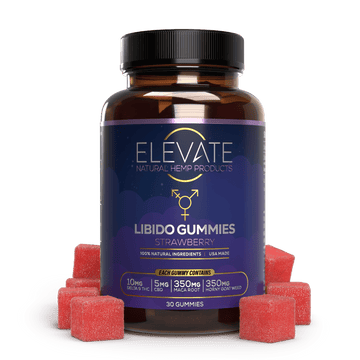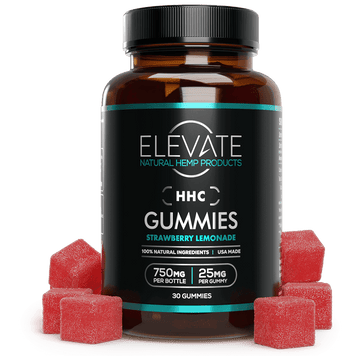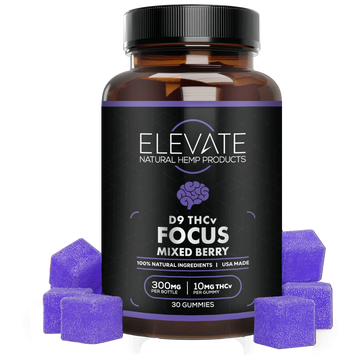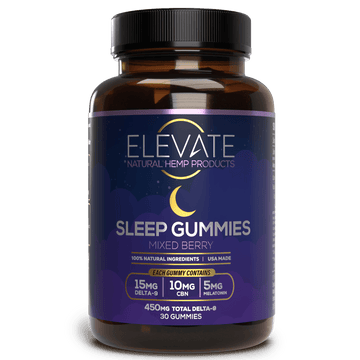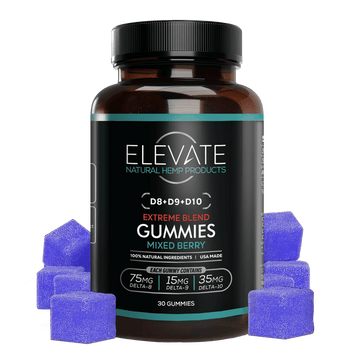Is THCA Legal in Texas? The Current Law Explained

Yes, THCA is currently legal in Texas - but with caveats.
Hemp products with less than 0.3% Delta 9 THC are permitted. THCA is technically legal because it's non-psychoactive in raw form.
The gray area: THCA converts to THC when heated. Some interpret Texas law to include "Total THC" which could make high-THCA flower non-compliant.
Verify current Texas laws.
Table of Contents
- Key Takeaways:
- What Is THCA And Why Does Its Legal Status Matter?
- Is THCA Legal In Texas Right Now? Here’s The Current Law
- Is Texas Going to Ban THCA?
- Understanding The THCA Loophole In Texas Hemp Flower
- Can You Legally Buy THCA Flower Online In Texas?
- THCA Consumption Methods And Legal Considerations
- Specific Texas Hemp Regulations You Should Know
- How To Stay Compliant When Buying Or Selling THCA in Texas
- Final Thoughts
- Frequently Asked Questions About Is THCA Legal In Texas
It sounds like a contradiction: a product that becomes psychoactive THC when you smoke it is being sold legally in stores all over Texas. This is possible because of a specific detail in the law often called the "THCA loophole." Federal and state laws define legal hemp based on its Delta-9 THC content, not its THCA content. Since THCA is non-psychoactive in its raw form, high-THCA flower falls within the legal definition of hemp. But how does this work in practice, and what are the risks? We’ll explain the science and the statutes that make THCA legal Texas for now

Key Takeaways:
- THCA is Legal in Texas—Conditionally: As long as hemp-derived THCA flower contains less than 0.3% Delta 9 THC by dry weight at the time of sale, it meets Texas’ legal definition of hemp.
- Heat Changes Everything: Once THCA is heated (via smoking, vaping, or cooking), it converts to THC, which can create legal risk and cause positive drug test results.
- Stay Compliant With Lab-Tested Products and Documentation: Always buy from reputable vendors who provide Certificates of Analysis (COAs), and keep records and packaging to prove legality if questioned.
If you’ve been eyeing THCA flower in Texas, chances are you’ve asked yourself the big question: “Is this even legal?” With new cannabinoids entering the market and laws that often feel like a moving target, Texas consumers are left trying to decode regulations that even retailers struggle to keep up with.
At Elevate, we understand how frustrating it can be to want the benefits of THCA, especially when it’s hemp-derived, without worrying about legal gray areas or potential consequences. The truth? Texas hemp law isn’t black and white when it comes to THCA, and depending on how and where it’s interpreted, the same flower can be considered fully legal or a legal risk.
In this article, we’ll explain exactly where Texas law stands today on THCA, how it’s being enforced, and what you need to know to shop confidently and responsibly. Whether you’re a seasoned buyer or just curious about THCA flower, this guide has your back.
What Is THCA And Why Does Its Legal Status Matter?
THCA is a naturally occurring cannabinoid found in raw, unprocessed cannabis flower. Unlike THC (tetrahydrocannabinol), THCA is non-psychoactive. This means that consuming raw THCA will not induce the “high” commonly associated with marijuana use. THCA only becomes psychoactive THC through a process called decarboxylation—a chemical reaction that occurs when the compound is exposed to heat, such as when smoking, vaping, or cooking with cannabis.
The Potential Health Benefits of Raw THCA
Beyond its legal standing, THCA is drawing interest for its potential therapeutic qualities. While research is still in the early stages, initial findings are promising. Studies suggest that raw THCA has strong anti-inflammatory properties, which could help manage conditions like arthritis by reducing swelling and pain. It may also offer neuroprotective effects, potentially safeguarding brain cells in ways that could be beneficial for neurodegenerative diseases. Additionally, some research points to its ability to ease nausea, offering a natural option for those undergoing treatments like chemotherapy. The most significant advantage is that you can explore these potential benefits without the high, since raw THCA is non-psychoactive, making it an appealing choice for daily wellness support.
Why THCA’s Legal Status Matters To You
Whether you’re seeking wellness benefits, exploring natural alternatives, or enjoying the nuances of cannabis strains, the legal classification of THCA matters for several reasons:
- Compliance and Safety: Knowing what’s legal ensures you remain compliant, avoid legal complications, and purchase products that have undergone quality testing.
- Drug Testing Concerns: Even if THCA itself isn’t psychoactive, consuming it (mainly through smoking or vaping) may result in a positive THC drug test after decarboxylation.
- Access and Availability: State laws impact where and how THCA-rich products can be bought and how they’re labeled and presented to consumers.
As the hemp and cannabis industry continues to evolve, keeping up with the latest regulations and understanding the science behind cannabinoids like THCA will help you make informed and responsible choices.
When Did THCA Become Legal in Texas?
If you’ve been wondering when THCA became legal in Texas, the answer goes back to the 2018 federal Farm Bill. That legislation made hemp and hemp-derived cannabinoids legal nationwide as long as they contained less than 0.3% Delta-9 THC by dry weight.
Texas followed suit in 2019 by adopting its own hemp program, which allowed retailers to offer THCA products in Texas as long as they met the federal THC threshold at the time of testing and sale.
Fast forward to 2025, and the conversation around hemp law has gotten a little more complicated. Lawmakers introduced Senate Bill 3 to ban consumable hemp products containing THC, which would include THCA.
While the bill was allowed to pass without a signature, it was vetoed by Governor Abbott in June 2025, keeping THCA legal for now. Still, the legal landscape remains fluid, so staying informed is key

Read Here: WHAT IS DELTA-8 FLOWER?
Is THCA Legal In Texas Right Now? Here’s The Current Law
The laws governing hemp and cannabis derivatives have changed rapidly in recent years, and understanding where THCA fits in is essential for anyone considering its use. Let’s break down the current landscape.
The 2018 Farm Bill And Texas Hemp Law
The foundation of hemp legality in Texas is rooted in the 2018 federal Farm Bill. This significant piece of legislation legalized industrial hemp nationwide, defining hemp as cannabis containing less than 0.3% Delta 9 THC by dry weight. Texas mirrored this law in 2019, legalizing the cultivation and sale of hemp-derived products within these parameters.
Under Texas law, products derived from industrial hemp—including those high in THCA—are generally permitted as long as they remain below the 0.3% Delta 9 THC threshold.
How Texas Defines “Legal” Hemp
Here’s where things get technical: While THC is explicitly regulated, other cannabinoids like THCA fall into a legal gray area. Texas law currently measures compliance based on the concentration of Delta 9 THC present in the product at the time of sale, not on the potential THC that could result if the product is decarboxylated (heated). This distinction is crucial, as THCA itself is not psychoactive, but it can convert to THC through smoking or heating.
Areas Of Caution For Consumers
Despite this legal standing, users should exercise caution. Texas law enforcement may interpret regulations differently, and legal precedent is still evolving. Additionally, because THCA-rich hemp flower can look and smell indistinguishable from illegal cannabis, there are risks in transportation or public use, even when the product is technically legal.
If you’re considering THCA flower or related products in Texas, the safest route is to stay informed, review lab reports for THC content, and keep documentation handy

The Legal Risks of Different Testing Methods
Here’s where things get a bit complicated: a THCA product’s legality can hinge entirely on the testing method used. Most reputable sellers, including us here at Elevate, rely on High-Pressure Liquid Chromatography (HPLC) for our lab reports. This method analyzes the product at room temperature, which allows it to show the THCA and Delta 9 THC content separately. Since the Delta 9 THC level is naturally below the 0.3% legal limit in its raw form, the product is considered compliant hemp. However, law enforcement agencies often use a different method called Gas Chromatography (GC), which involves heating the sample. As we’ve covered, that heat is exactly what converts THCA into psychoactive Delta 9 THC, leading to a completely different test result.
Potential Consequences and Law Enforcement Confusion
Because the Gas Chromatography (GC) method heats the sample, it converts all the THCA into Delta 9 THC. This means a product you bought legally could suddenly test as illegal marijuana under state law, creating a serious risk for you. This discrepancy isn't just a technicality; it causes real-world confusion. As one report highlights, many police officers aren't fully versed in these complex cannabis laws and may not understand the critical difference between legal THCA hemp and illegal marijuana. This lack of clarity means that even if you’ve done everything right, you could still face legal complications. It’s a strong reminder to always be a discreet and responsible consumer.
Is Texas Going to Ban THCA?
Right now, THCA is still legal in Texas, but lawmakers have been working hard to change that.
In 2025, Senate Bill 3 sought to ban all hemp-derived THC products, including THCA products in Texas, but Governor Greg Abbott vetoed the measure after strong pushback from veterans, patients, and hemp advocates. While that veto kept THCA on shelves, the debate isn’t over. New bills and special sessions continue to target hemp products, leaving the future uncertain.
To complicate things further, other laws passed in 2025 created restrictions, such as banning vape products with THC, Delta-8, and THCA. Some forms of consumption are under pressure, while THCA flower remains legal under hemp law for now
If you’re interested in exploring THCA products in Texas, now is the time to take advantage while the market remains open.
The Political and Economic Context
The conversation around THCA in Texas isn't just about legal definitions; it's also about a multi-billion dollar industry that has grown significantly since hemp became legal in 2019. This economic impact has created a tense political environment, with some lawmakers pushing for stricter regulations or outright bans. In 2025, for example, a bill was introduced that would have banned all hemp-derived THC products. However, strong pushback from veterans, patients, and hemp advocates led to a gubernatorial veto, keeping the market for popular hemp-derived products open for business. This victory highlights the power of consumer and industry voices, but it doesn't guarantee long-term stability. The legal landscape remains uncertain, leaving both businesses and consumers in a state of cautious optimism as they watch for the next legislative session

Understanding The THCA Loophole In Texas Hemp Flower
Texas has become an epicenter for conversations about hemp and cannabis legality, and much of the current debate hinges on the nuanced differences between cannabinoids, specifically THCA and THC. A deeper look into how the law defines and treats these compounds is essential to make sense of what's allowed and what's not.
What Is the "THCA Loophole"?
The so-called "THCA loophole" refers to the way Texas—and federal—law currently distinguishes between THC (tetrahydrocannabinol) and THCA (tetrahydrocannabinolic acid). Hemp-derived products are federally legal under the 2018 Farm Bill as long as they contain less than 0.3% Delta 9 THC by dry weight. However, the legislation does not explicitly address THCA, which is the non-psychoactive precursor to THC found in raw cannabis flower.
Because THCA itself does not cause psychoactive effects until it is heated (through smoking, vaping, or cooking—a process known as decarboxylation), hemp flower high in THCA but low in Delta 9 THC falls within the legal definition of hemp. As a result, a range of THCA-rich hemp flower products have emerged in Texas, marketed for those seeking cannabis benefits without explicitly breaking state or federal law.
Evolving Regulations And Future Uncertainty
It’s important to note that the legal status of THCA hemp flower in Texas remains subject to change. As lawmakers and regulators become aware of the loophole, discussions about closing this gap—potentially by including total THC content in legal definitions—continue to surface. Enforcement practices vary by county, and the regulatory landscape is evolving.
Understanding the current legal context is crucial before purchasing or using THCA-rich hemp flower in Texas, as even minor legislative amendments could reshape what is considered legal. Always keep up with the most recent state and federal guidelines to stay compliant while enjoying the benefits of hemp-derived cannabinoids.
Can You Legally Buy THCA Flower Online In Texas?
Let’s break down what you need to know about the legal status, shipment, and possession of THCA flower in Texas.
The Legal Definition Of Hemp In Texas
Under both federal and Texas law, “hemp” is defined as cannabis and cannabis-derived products containing no more than 0.3% Delta 9 THC by dry weight. The Texas House Bill 1325, passed in 2019, made it legal to possess and purchase hemp-derived products as long as they meet this critical threshold.

Purchasing THCA Flower Online: What To Look For
When buying THCA flower online in Texas, it is essential to ensure the product complies with state and federal regulations. Look for third-party lab reports confirming Delta 9 THC levels. Reputable vendors provide Certificates of Analysis (COA) that detail cannabinoid content and help you ensure the flower qualifies as legal hemp.
Shipping And Possession: Staying Compliant
Ordering THCA flower online will likely be shipped via postal or courier services. To ensure compliance, ensure the product remains in its original packaging with proper labeling and accompanying laboratory results. If questioned by authorities, documentation showing the product meets the Texas legal definition of hemp can help avoid confusion.
Practical Considerations For Texas Buyers
While THCA flower is available online, remember that interpretation and enforcement can vary between jurisdictions in Texas. Local law enforcement may not always differentiate hemp flower from marijuana by appearance alone, potentially leading to misunderstandings. Always store your purchase safely and keep documentation accessible to clarify its legal status.
THCA Consumption Methods And Legal Considerations
As awareness of THCA grows, so does curiosity about the many ways it can be enjoyed and the nuanced legal boundaries in Texas. A clear understanding of consumption options and state compliance will help users make informed, safe choices.
Raw Consumption: Smoothies, Juices, And Salads
Consuming THCA in its raw form—before it’s heated or decarboxylated—means enjoying the potential wellness benefits without experiencing any psychoactive effects. Popular raw methods include blending fresh hemp flower into smoothies, cold-press juicing, or sprinkling onto salads. Since THCA hasn’t been converted into THC, these forms generally remain compliant with Texas law, provided the hemp flower was sourced within legal THC limits.
Vaporizing And Smoking: Decarboxylation Dynamics
When THCA-rich hemp flower is smoked or vaporized, heat triggers decarboxylation, converting THCA to THC. This process can lead to intoxicating effects similar to traditional marijuana products.
Texas law considers the total potential THC content upon decarboxylation, so buyers must pay close attention to product lab results and always verify the legal compliance of their products. Carrying or using THCA flower in a way that law enforcement could interpret as intent for psychoactive use carries legal risk.
Understanding the Entourage Effect
When you consume THCA flower, you’re getting more than just one compound. The cannabis plant contains hundreds of components, including other cannabinoids and aromatic terpenes, which create a strain’s unique scent and flavor. The "entourage effect" is the theory that all these elements work together synergistically, enhancing each other’s effects. This is why two different strains can produce very different feelings, even with similar THC levels. One might be better for relaxing after a long day, while another helps with focus. Understanding this interaction can help you select products that better align with your desired experience.
Addiction Potential of THC
It's important to be mindful of the risks associated with any substance. Raw THCA is non-psychoactive and considered very unlikely to be addictive. However, once it's heated and converts to THC, the potential for dependency changes. THC interacts with the brain's reward system by releasing dopamine, which creates feelings of pleasure. Over time, repeated use can lead some individuals to develop a dependence. Responsible consumption, including understanding your own limits and taking breaks, is key to maintaining a healthy relationship with cannabis products and minimizing any potential for habit formation.
Edibles And Infusions: Legal Gray Areas
THCA can be infused into oils, butters, or tinctures for use in homemade edibles. However, any exposure to heat during preparation will decarboxylate the cannabinoid, creating THC, which is a controlled substance in Texas if the concentration exceeds 0.3%.
Unheated edibles using raw THCA can remain within legal lines. Still, all infused products should be approached with caution and an understanding of how preparation methods may shift the product’s legal classification.
Drug Testing And Safe Storage
Even if you’re consuming hemp flower that’s compliant at the point of sale, it’s essential to recognize that heat exposure can convert THCA to THC, which may result in a positive drug test. Texas employers and law enforcement do not differentiate between THCA and THC once decarboxylated. Safe storage—away from heat, light, and moisture—helps maintain THCA content and minimizes unintended conversion to THC.
Is It Legal to Smoke THCA in Texas?
As of 2025, THCA is still legal in Texas, but with important distinctions you’ll want to understand.
Senate Bill 2024 banned the sale of vape products containing THC, including hemp-derived THCA products in Texas, effective September 1, 2025. That means smoke shops can no longer sell THCA vapes, but possession and personal use are not criminal offenses.
For those who prefer smoking flower, THCA derived from hemp remains legal under the state’s hemp program as long as it contains less than 0.3% Delta-9 THC by dry weight.
You can still legally enjoy smokable THCA flower in Texas, but the market for vape products has been shut down. The rules are complicated and could shift again with future legislation.
Specific Texas Hemp Regulations You Should Know
Beyond the big question of whether THCA is legal, there are several specific state rules that affect how you can buy and sell hemp products in Texas. These regulations might seem like they’re just for retailers, but they have a direct impact on your safety and access as a consumer. Understanding these details helps you spot a reputable seller from a questionable one and ensures you’re always on the right side of the law. From age limits to where products can be sold, here are the key Texas hemp regulations you should be aware of before you make a purchase.
Age Requirements for Purchase
This one often surprises people: currently, Texas state law does not specify a minimum age for purchasing consumable hemp products. That means, legally speaking, there’s no state-level restriction preventing a minor from buying THCA. However, this is where responsible business practices come into play. Most reputable retailers, both online and in-person, establish their own age restrictions, typically requiring customers to be 18 or 21 years old to purchase. This self-regulation is a crucial part of maintaining a safe and responsible market, ensuring that these products are sold to adults who can make informed decisions about their use.
Rules on Manufacturing vs. Selling Smokable Hemp
Texas has a very specific rule when it comes to smokable hemp. The law bans the manufacturing or processing of any consumable hemp product intended for smoking *within* the state. However, it is completely legal for retailers to sell smokable products, like THCA flower, as long as those products were made outside of Texas. For you as a consumer, this means the flower you buy from a Texas shop was grown and processed elsewhere. This distinction is important because it ensures that the products available on shelves are sourced from a national market, giving you access to a wide variety of strains from established, compliant producers.
Online Sales and Retailer Registration
If you prefer the convenience of shopping online, Texas has regulations in place to protect you. Any business that sells consumable hemp products online to customers in Texas is required to hold a DSHS Retail Hemp Registration. This rule applies even if the company is physically located outside of the state. Think of it as a layer of consumer protection. This registration requirement helps ensure that online sellers are accountable and adhere to state guidelines, making it easier for you to identify legitimate businesses. When you shop online, choosing a registered retailer gives you confidence that you're buying from a company that takes compliance seriously.
Prohibited Sales Locations
Where you buy your hemp products matters. Texas law prohibits anyone from making or selling consumable hemp products from a private residence or home. To operate legally, a seller must have a separate, licensed facility that isn't connected to their living space. This regulation is designed to ensure that products are stored and handled in a clean, professional, and controlled environment, rather than someone’s garage or kitchen. It helps filter out unregulated, pop-up sellers and directs consumers toward established businesses that invest in proper facilities, which ultimately translates to higher quality and safer products for you.
How To Stay Compliant When Buying Or Selling THCA in Texas
Here’s what you need to know to keep your THCA transactions on the right side of the law.
Understand The Legal Definitions
Under current Texas law, legal hemp products must contain less than 0.3% Delta 9 THC by dry weight. THCA, while non-psychoactive in its raw form, can be converted to Delta 9 THC through heat (a process known as decarboxylation). When purchasing or selling, ensure that lab-tested, up-to-date Certificates of Analysis (COAs) verify that THCA and Delta 9 THC levels comply with state regulations.
Source Products From Reputable Suppliers
Not all hemp flower is created equal. Reliable suppliers provide transparency about their cultivation methods, third-party lab testing, and detailed cannabinoid profiles. Always request documentation—including COAs—before finalizing any purchase or sale. This will help demonstrate your diligence if questions arise.
Expert Advice: Check for "Total THC" Lab Results
When you're shopping for THCA, the Certificate of Analysis (COA) is your best friend. This document is a third-party lab report that breaks down the exact cannabinoid content of the product. Reputable sellers will always make these easy to find. The most important number to look for is the Delta 9 THC percentage. Under Texas law, this figure must be at or below 0.3% by dry weight for the product to be considered legal hemp. This is because the law measures the THC content at the time of sale, not the potential THC that gets created when you heat the flower.
This distinction is the core of the THCA loophole. While the product is compliant on the shelf, it's important to understand its full potential. Some lab reports will also list a "Total THC" value, which is calculated to show the full amount of THC present after decarboxylation. While not the current legal standard for hemp in Texas, knowing this number gives you a more complete picture of the product's potency and helps you make a more informed decision about what you're consuming and the potential effects you can expect.
The Risks of Unregulated Products
Buying from an unvetted source is a gamble you don’t want to take. The biggest risk comes from how law enforcement might test the product. If an officer uses a field test that involves heat (like gas chromatography), it will instantly convert the THCA into Delta 9 THC. A product that was legally compliant when you bought it could suddenly test as illegal marijuana, creating a serious legal headache. This is why sticking with trusted vendors who provide clear, verifiable lab results is so important for your peace of mind.
Beyond the legal issues, unregulated products come with quality and safety concerns. Without proper testing, you have no way of knowing if the flower contains impurities like pesticides or heavy metals. The product could also be mislabeled, leading to inconsistent effects or an unexpectedly potent experience. Because THCA flower looks and smells just like marijuana, carrying it in public can also attract unwanted attention. Always shop from brands that prioritize transparency and safety, so you know exactly what you're getting every time.
Keep Accurate Records
Meticulous record-keeping benefits both buyers and sellers. Save all invoices, shipping manifests, COAs, and transaction documentation. This paper trail is crucial if there’s ever a discrepancy regarding the legality of your THCA products.
Store And Label Properly
THCA flower products should be labeled with cannabinoid content, batch information, and usage instructions. Retailers should prevent minors from accessing their products and follow all packaging requirements specified by Texas law—an extra step to protect businesses and consumers.
Stay Informed On Regulatory Updates
Cannabis law is constantly changing. Monitor updates from state health departments and legal advisories to avoid inadvertently breaking new regulations. Joining industry associations or subscribing to regulatory newsletters can help you stay ahead.
Final Thoughts
Navigating the legality of THCA in Texas can feel like trying to hit a moving target, but understanding the current laws, compliance standards, and consumption risks puts the power back in your hands. While THCA-rich hemp flower may be legal under both state and federal definitions of hemp, it lives in a legal gray area that could shift at any time.
Elevate is committed to helping you shop confidently by providing lab-tested, compliant THCA products you can trust. Whether buying for wellness, curiosity, or lifestyle, staying informed is your best protection in this ever-evolving space.
Read also:
- Can You Fly With THC Gummies: What The Law Actually Says
- THC Dosage: How Much Is Too Much and What’s Just Right
- THCA Flower Vs. THC Flower: How They Compare In Effects And Legality
Frequently Asked Questions About Is THCA Legal In Texas
How does THCA differ from THC?
THCA (tetrahydrocannabinolic acid) is a non-psychoactive cannabinoid found in raw cannabis plants. Unlike THC (tetrahydrocannabinol), THCA does not produce a “high” unless it is heated—a process known as decarboxylation. When THCA is exposed to heat (such as through smoking, vaping, or cooking), it converts into THC, which is the psychoactive compound regulated by law.
Are there any specific forms of THCA that are legal in Texas?
Legal forms of THCA in Texas must adhere strictly to the Delta 9 THC limit of 0.3% on a dry weight basis. This means raw hemp flower, tinctures, and other products high in THCA but low in THC are legal for sale and possession, as long as they’re derived from hemp and laboratory tested for compliance. Products that exceed the THC threshold, especially after heating, may be subject to different regulations.
Do federal laws on cannabis affect THCA legality in Texas?
Yes, federal legislation, specifically the 2018 Farm Bill, legalized hemp and hemp-derived cannabinoids—including THCA—if they contain less than 0.3% Delta 9 THC on a dry weight basis. Texas state law is closely aligned with this federal standard, so both state and federal compliance is required for any THCA products.
How can consumers ensure THCA products are legal in Texas?
To verify legality, always look for clear lab results that show Delta 9 THC levels under 0.3% by dry weight. Reputable retailers like Elevate offer certificates of analysis (COAs) and emphasize transparency, helping you make informed decisions. Also, check labeling carefully for THC and THCA content, and avoid products that seem unclear or lack verified lab documentation.
How often do cannabis laws change in Texas?
Cannabis laws in Texas are subject to change, often driven by legislative sessions or updates to federal regulations. While the pace of change may be slower than in some other states, increased interest in hemp products and cannabinoid wellness can lead to ongoing legislative reviews. Staying informed through official resources or trusted retailers ensures you’re current with the latest legal landscape.
What should you do if you're unsure about THCA legality in Texas?
If you’re uncertain about the legality of a specific THCA product or practice in Texas, it’s best to consult a knowledgeable retailer or legal professional or review the latest state and federal guidelines. Elevate provides up-to-date educational resources to support safe, legal usage because transparency and consumer safety are our highest priorities.
Join Our Newsletter
Sign up to be the first to know about our can't-miss product drops, special VIP offers & exclusive discounts.

